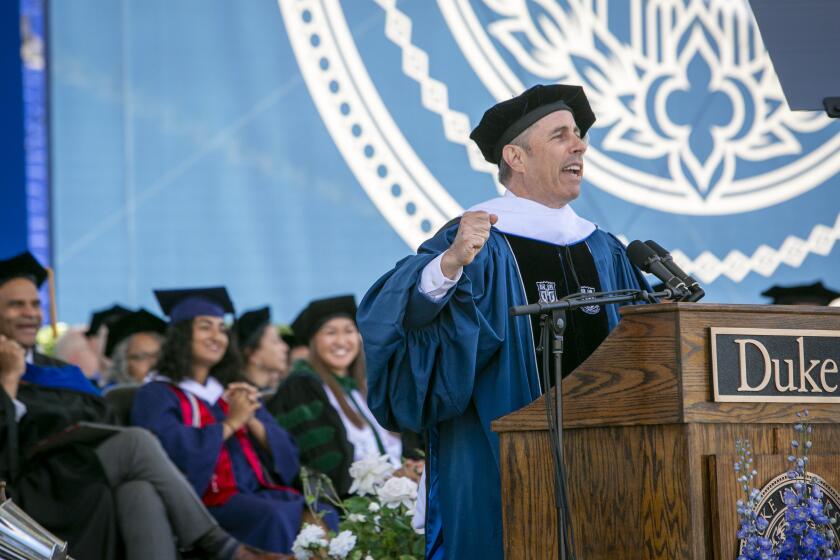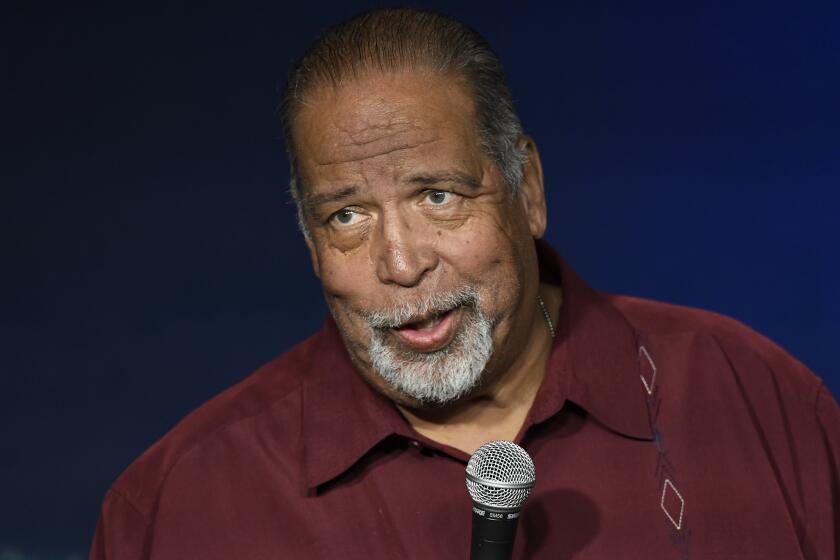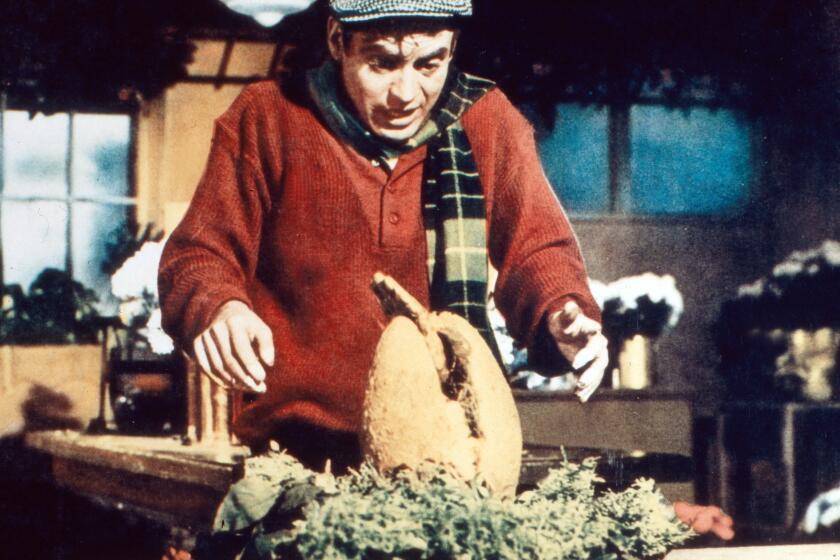TV Reviews : Beale St. Portrait Without the Music in ‘All Night’
“All Day and All Night,” airing Sunday at 11 p.m. on KCET Channel 28, is just about half the show it should be--literally. Presented under the auspices of the Center for Southern Folklore, this 30-minute cross-section of Beale Street in Memphis could have made an absorbing one-hour program, with more music to flesh out the already ample and richly anecdotal talk.
The central point of interest is the life style of musicians who lived in Memphis in the first half of this century. According to the interlocutors who reminisce about Beale Street, this was the throbbing counterpart of Basin Street in New Orleans.
B. B. King, who from 1950 to 1953 had his own series on the pioneer black-oriented radio station WDIA in Memphis, sings a couple of numbers but is presented primarily as the main speaker, recalling with wry humor the days when, unemployed and broke, he would win a $1 prize in a local amateur night show.
The Rev. Dwight (Gatemouth) Moore recalls affectionately his youthful blues-singing days. Rufus Thomas, a few years Moore’s junior and one of his most ardent disciples, speaks eloquently: “If you were black for one Saturday night and went to Beale Street, you’d never want to be white again.”
The camaraderie and creative spirit that pervaded Beale Street in those days is no doubt colored by the warming flow of nostalgia, yet much of it seems real and convincing. If only there had been more than those brief minutes of actual performance, the value of “All Day and All Night” would have been as compelling as the impact of the conversation.
The complete guide to home viewing
Get Screen Gab for everything about the TV shows and streaming movies everyone’s talking about.
You may occasionally receive promotional content from the Los Angeles Times.



